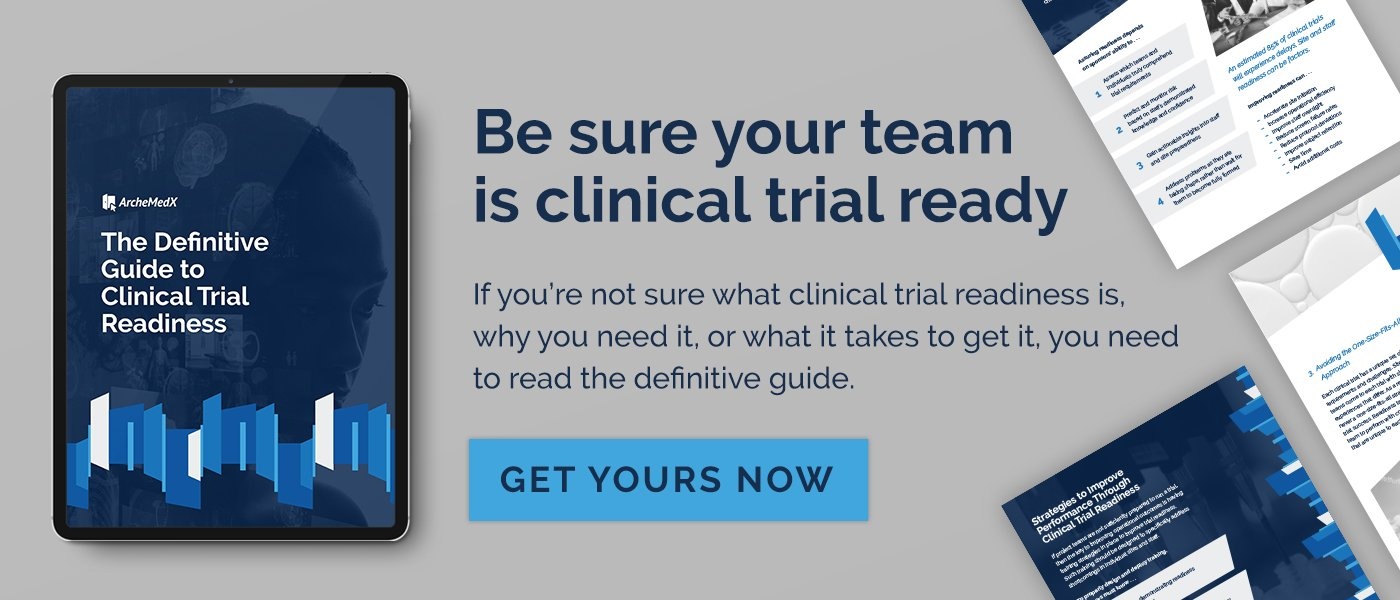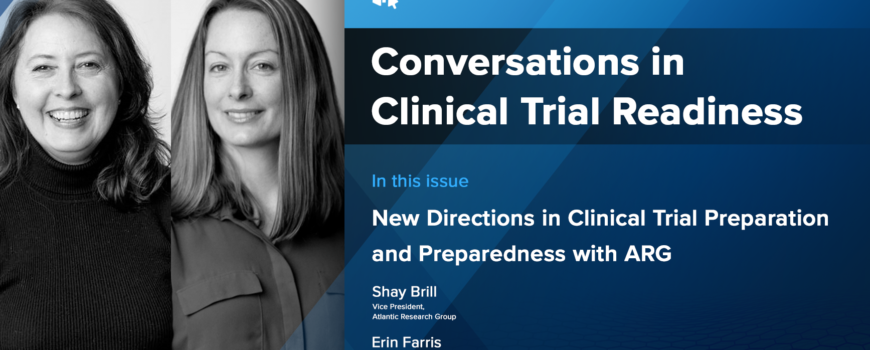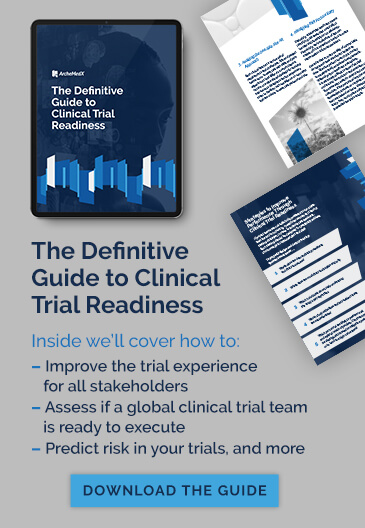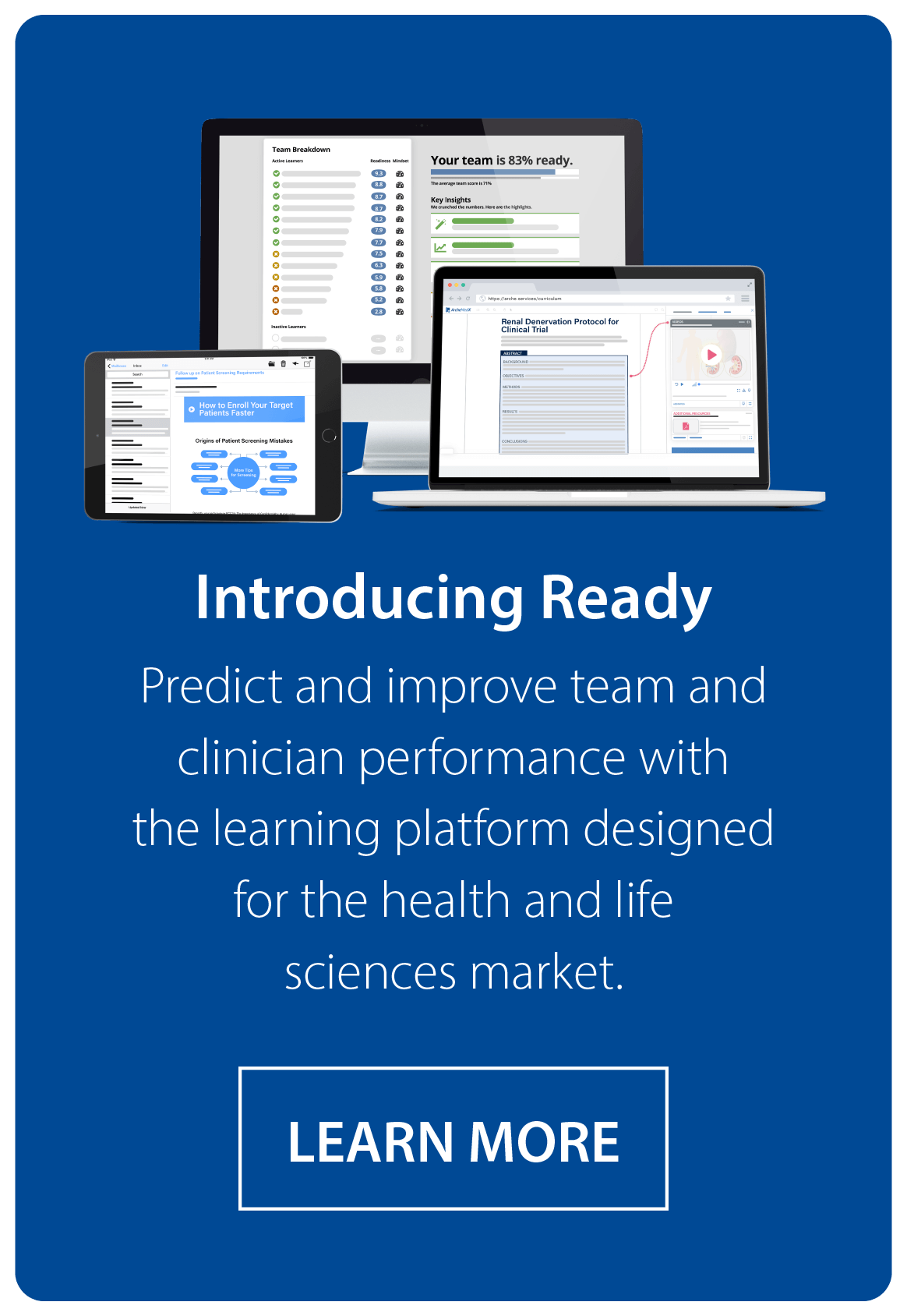
We recently talked with Atlantic Research Group (ARG) executives Shay Brill, VP at ARG, and Erin Farris, Senior Director Project Management, about clinical trial operations, how they are changing, and how they are likely to change. We wanted to share this excerpt from the conversation:
ArcheMedX:
What are your predictions for how clinical operations will work— or should work—in the future?
Erin:
Over the last year, we’ve been utilizing data analytics more and more. We have a data strategy group here at ARG that focuses on how we can best leverage all of our data from various systems to not only visualize what has been happening to date, but also predict what will happen. I think predictive modeling is where we are heading.
We operationalize projects with the endgame in mind. At study conclusion, how do you want to analyze and present your data? You really need to start with data analysis first and work backwards, as this will determine how your database will be built. That really drives how you’re going to implement from an operational perspective.
Project team members are consistently performing aggregate data reviews on each of their projects. They have real-time access to dashboard reports that display key performance metrics and key risk indicators that flag what data needs our immediate attention.

ArcheMedX:
Shay, your predictions?
Shay:
Our science is getting so complicated at this point . . . We take T cells from patients, modify them, and then put them back into the patients to engage their immune system. This is not a product that will ever be at CVS or Walgreens. It’s personalized, precision medicine. The aspects of clinical research cause us to look now at a manufacturing supply chain in a much better way—and a much needed way.
Our technology and analytics are allowing us to step away from matching data in a medical record to what is in a clinical database. People are stepping back and looking at the bigger picture, and at how successful we are at meeting the end goals for the clinical trial and what is happening to the patient during the trial. People are having to learn new ways of assessing that information and making decisions about it. It’s no longer, “How do I travel to the site?” and looking at all the data, and poring over it data point by data point. Now it’s about asking that people have more analytical skills and critical thinking skills than ever before.
The resource model is shifting. I’ve been in the workforce since ’94. I’m continuing to have to increase my technology skills and my scientific knowledge. Both technology and science are changing and employees need to continue to learn. It is not enough to ask how long you have been in the industry, but to truly assess what you know and understand so employers can increase the knowledge areas of their employees and not waste time with knowledge areas that are strong.
Erin and I just worked on a very complicated study. It took us two or three rounds to understand the science of it. How do we keep growing our skill sets in the face of these sorts of demands?
ArcheMedX:
Shay makes a great point. Our clinical operations leaders and project teams need to be equipped with the critical skills, knowledge, and mindset required to meet the increased complexity and demands of tomorrow’s clinical trials. Otherwise, clinical studies will be at risk.
What can we do to gain new expertise on every study when a career involves hundreds of studies? One solution is to deliver more personalized training that provides each clinical leader the skills and knowledge they need to grow and adapt over time. The more effectively we can tailor each learning experience, the more impactful the investment in time and resources will be. To achieve this goal at scale, we need an approach that more precisely highlights and then targets the areas where teams or individuals are not demonstrating readiness to perform. Efforts like these support more effective deployment of resources in preparing for a successful clinical study.
Learn how ArcheMedX enables peak clinical trial readiness by delivering personalized learning experiences that generate actionable insights.





